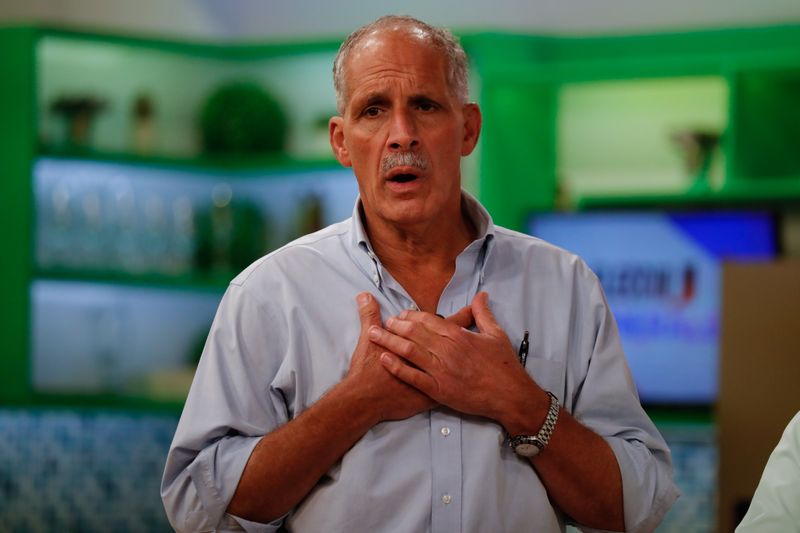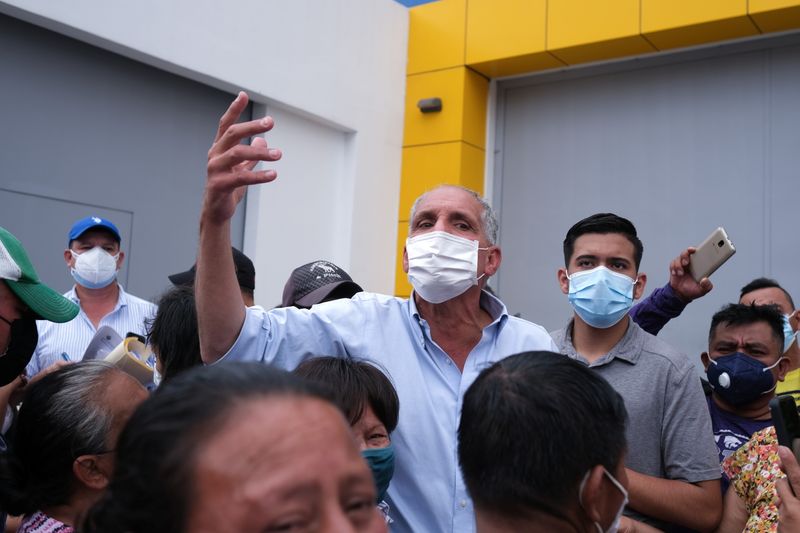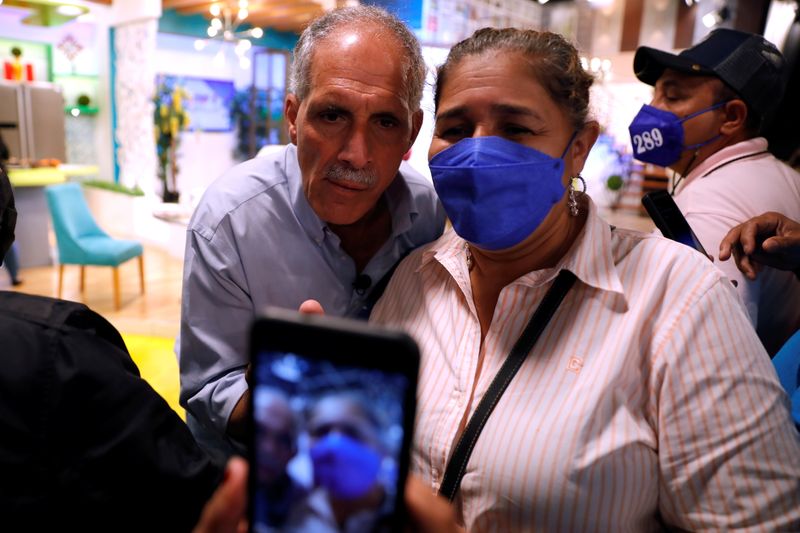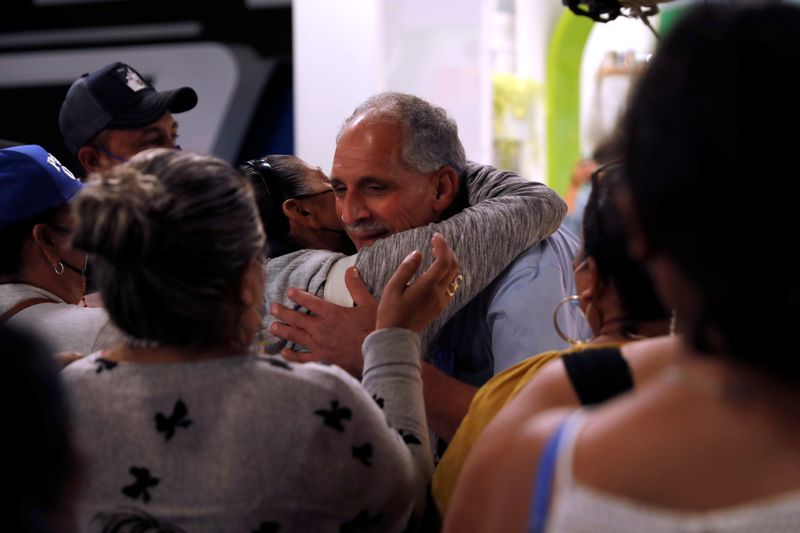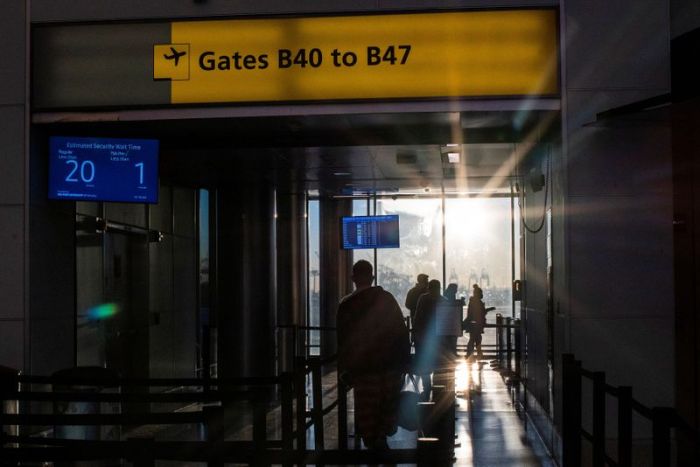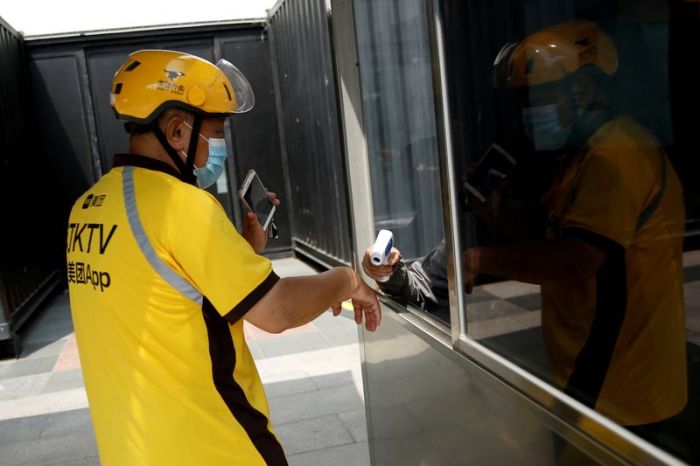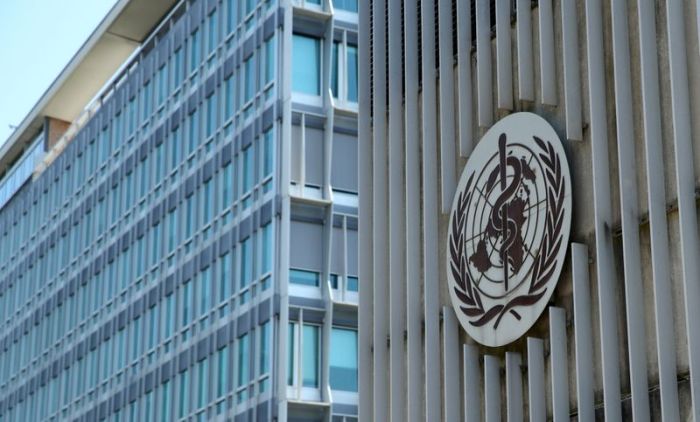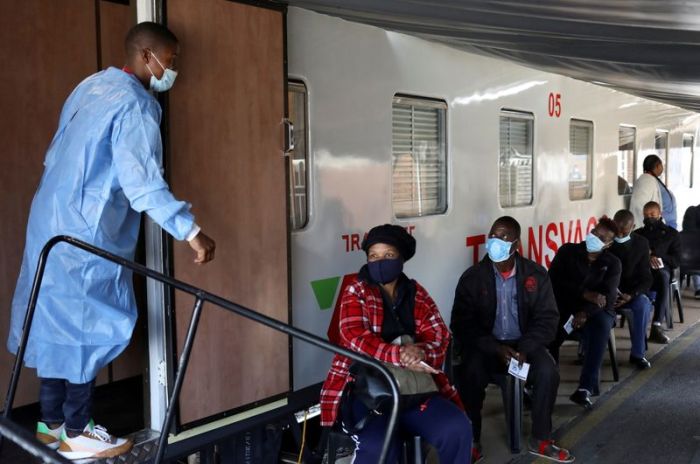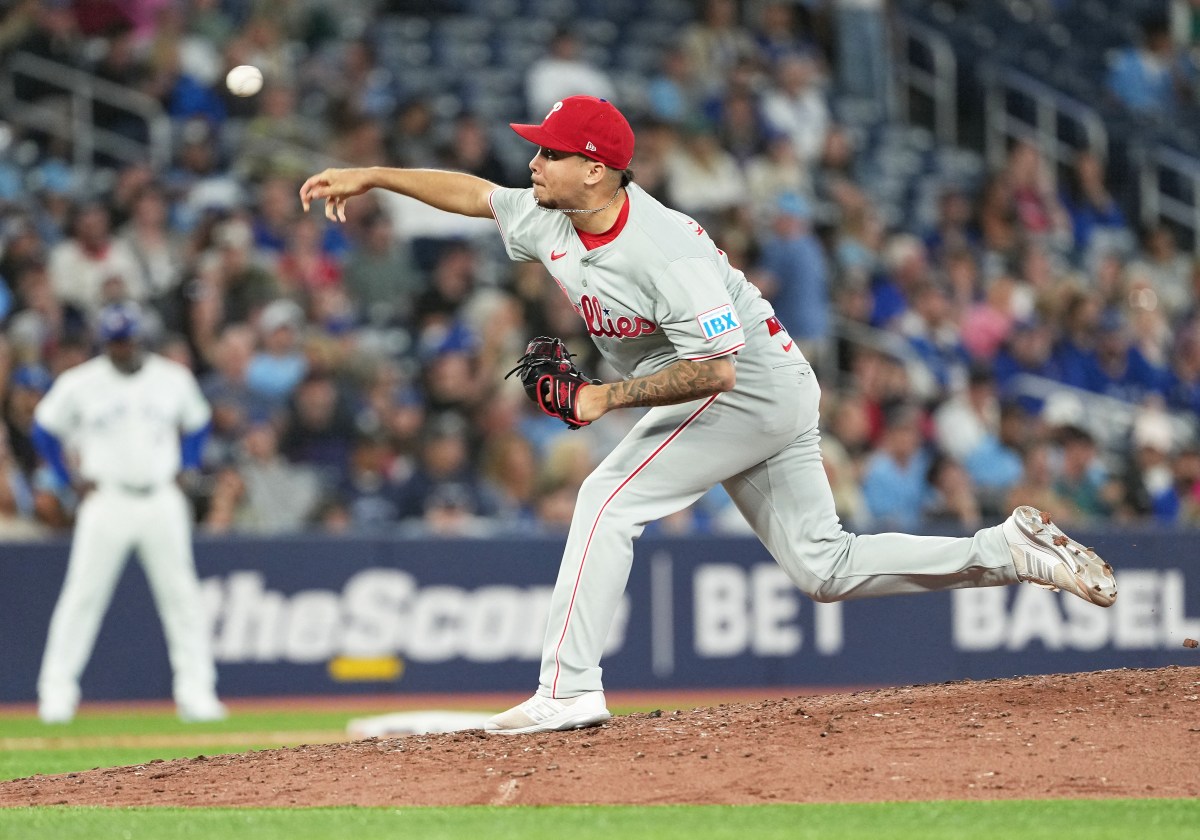TEGUCIGALPA (Reuters) – If he is to extend the Honduran conservatives’ dozen years in power, Tegucigalpa Mayor Nasry “Tito” Asfura must overcome the unpopularity of the outgoing president, a unified opposition, and a deep economic slump in the Central American nation.
A poll released late last month showed the two-term mayor from the ruling National Party trailing by double-digits his main rival, leftist candidate Xiomara Castro, who hopes Sunday’s general elections will propel her to become the country’s first female president and end a decades-long duopoly in Honduras.
Still, many analysts expect a close race.
Undeterred by the rise of the Libre Party’s Castro, Asfura says he has traveled more than 40,000 km (25,000 miles) over the course of the campaign, trying to convince Hondurans that despite being dogged by allegations of his own corrupt acts, he can offer a clean break from the scandal-ridden tenure of outgoing President Juan Orlando Hernandez.
“We will clear the table,” Asfura said at a recent rally, distancing himself from accusations of corruption and pledging action.
Among the biggest scandals, Hernandez has been accused of aiding drug traffickers and his younger brother Tony was convicted earlier this year in a New York courtroom on charges he helped run a massive drug racket.
Juan Orlando Hernandez has denied all allegations he has participated in graft.
In a local television interview on Friday, Asfura tried to assure viewers that he can be trusted.
“I’ve never touched any of your taxes,” he said, adding that in recent talks with representatives of the International Monetary Fund he said future tax hikes are off the table but some reductions might be enacted.
BUSINESSMAN AND POLITICIAN
The 63-year-old Asfura is the son of Palestinian immigrants who fled their homeland after the start of the Arab-Israeli conflict in the 1940s.
Known among his supporters as “Papi a la orden,” or “Daddy at your service,” Asfura studied civil engineering and despite not completing his degree, he worked as a businessman in the construction industry for decades.
He began working in public service in the 1990s, and was first elected mayor of Tegucigalpa in 2013.
Asfura has not presented a detailed campaign platform, but at rallies he has pledged to boost road infrastructure and create jobs. He has also said he will support education, health, small and medium-sized businesses, as well as the manufacturing industry.
“With work, work and a lot of effort we are going to move Honduras forward,” he told supporters at a rally, clad in his usual outfit of a light blue shirt with rolled-up sleeves, jeans and work boots.
Despite gaining popularity in Tegucigalpa for his public works projects, the mayor has been plagued by a series of allegations of corruption.
In another instance, the Specialized Fiscal Unit Against Corruption Networks (Uferco) filed a petition in 2020 for a preliminary ruling against Asfura and councilman Nilvia Castillo, accusing the two of diverting $1.2 million of public funds for their own benefit between 2017 and 2018.
But the case stalled after the criminal chamber of the Supreme Court – controlled by allies of the outgoing president – ruled in favor of the defense’s appeal, citing procedural errors.
In October, Asfura’s name appeared as the owner of a company registered in Panama in the Pandora Papers, a massive leak of confidential financial records revealing assets held offshore by politicians and public officials worldwide.
Asfura has repeatedly denied all allegations of corruption.
“Asfura cannot and does not want corruption to be investigated and fought,” said Eugenio Sosa, a sociologist and professor at the National Autonomous University of Honduras.
“That’s because the group of people who will govern Honduras if he is president is the same group that has … built a scheme of impunity,” he added.
(Reporting by Gustavo Palencia in Tegucigalpa; Additional reporting by Diego Ore in Mexico City; Writing by Laura Gottesdiener; Editing by David Alire Garcia, Michael Perry and Matthew Lewis)

